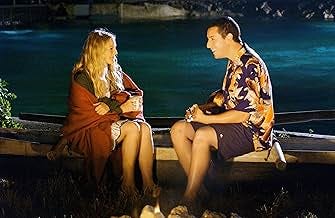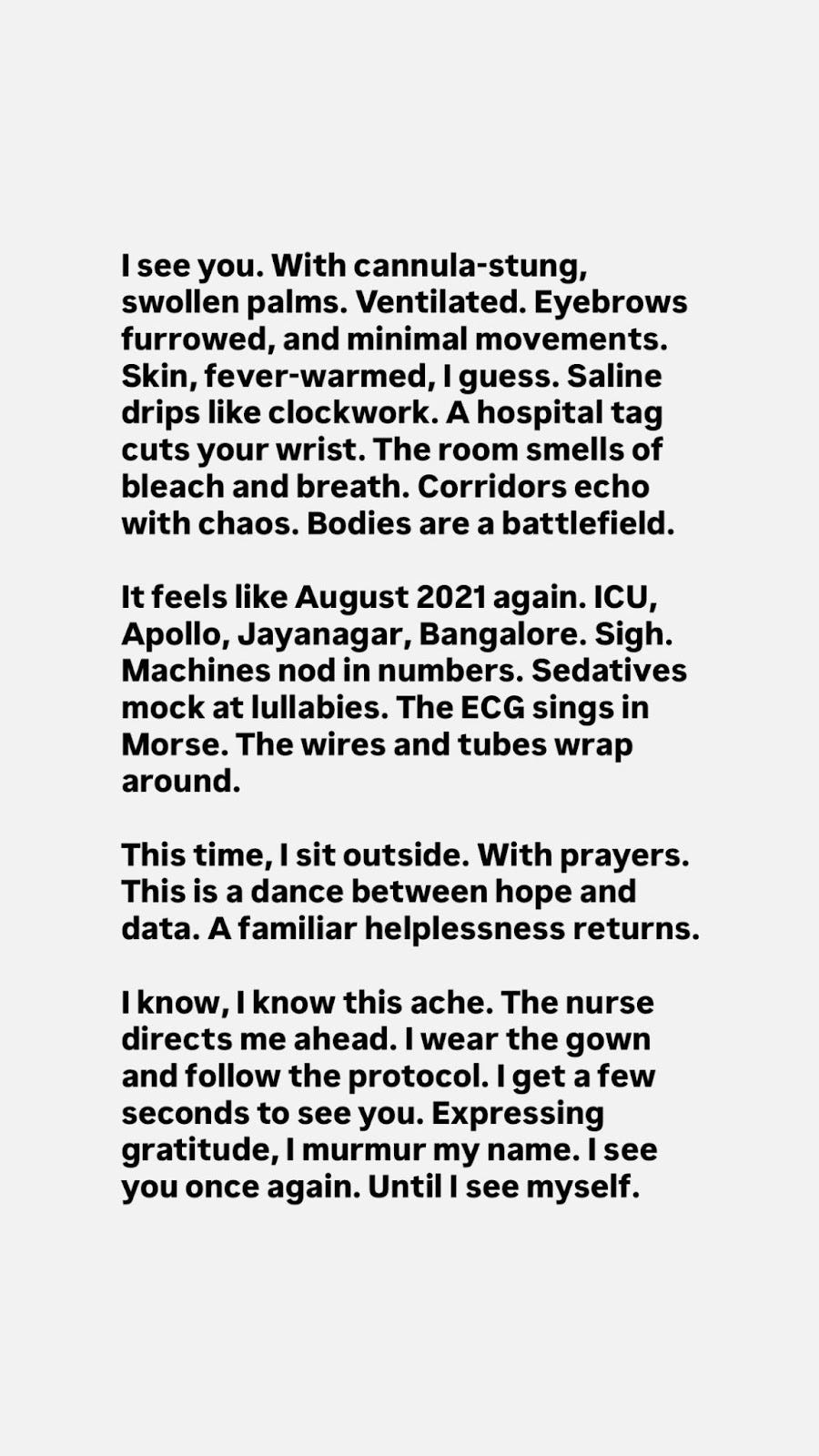We recently lost someone close to our marrow. My last grandfather — Dr Arun Kulkarni (dad’s uncle or Kaka Ajoba in Marathi).
Was in Nashik for a few days. His demise was subdued, like someone slowly dimming the lights on a long, gentle play. He breathed his last on the birth date of his elder brother - my late grandfather Author Shyamkant Kulkarni and completed a quiet, invisible circle of memory.
I’m writing this because I don’t know any other way. In my last musing, I wrote about the daily invisible obituaries and alas, soon had to write a real one.
Grief has that odd texture — they say it is love with nowhere to go.
Sometimes, it feels like staring out of a car window and wondering when your parents got old. Sometimes, it feels like struggling to hug your long-distance bestie. Sometimes, it feels like silence you don’t know how to punctuate.
Even before my fatal dengue episode, amidst the second wave of covid, I had written a raw poem about what to do in case of my sudden sundown.
“I genuinely hope that my words,
they, no matter what - build an empire
of the warmest of smiles in your eyes”
Recently came across a piece where Suleika Jaouad (American author) said something that made my ribs sit up and listen.
It is exhausting to live every day as your last. We are not built for that kind of daily epiphany. We all read these Pinterest-mantra versions of wisdom “Live like it’s your last day!” — as if we’ll suddenly become more grateful, more spontaneous, more radiant. Easier said…
That kind of living is more restlessness than poetry. It’s not sustainable. It demands too much. Suleika added that she tries to live every day as her first. But even that, she admits, is more ‘creative alchemy’ than practical living. And somewhere between those two extremes I started wondering what it means to just… be.
It took me back to something I wrote when my maternal grandfather passed away. He was 90. I hope he lived his last day as last. I meant well. But I was younger. I didn’t know then that urgency is often a mask for unresolved fear.
And that’s when it hit me. Grief, in some ways, feels like the movie 50 First Dates.
The love story where memory resets every morning, and the protagonist has to be reminded again and again that she is loved, that she is safe, that she belongs. She suffers from a fictional neurological condition called Goldfield Syndrome, which is a type of anterograde amnesia.
That’s what mourning does too. You wake up, life reminds you that someone is missing. And then you carry them in music and memories.
With you. With intention.
I don’t believe in living as if things are about to evaporate. I would like the version of me I’d want to come home to. What is home, anyway?
No one can tell you how to live, but life itself if you are willing to listen. Not the books or the apps. Not the algorithms. Not the existential podcasts (too many of them, IKR ugh!). I like how wrote about “The soft-toxic influence”. You should read it. :)
You’ll hear noise, both naive and well-intentioned. Grief will rewrite you in the margins, in the muscle memory, in how gently you hold a day. But at some point, you have to tune into your own rhythm. And decide how to love the day you’re given.
I want to live like I am soulprinting an activity book, a life with no regrets — fully present, sanguine self.
With all my heart and some loose metaphors,
Here’s to living in sentences, yours, mine and ours.
Writeously yours,






